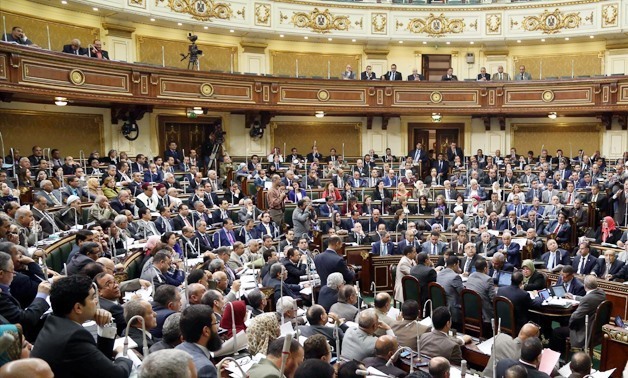
House of Representatives - File photo
CAIRO - 10 June 2018: The House of Representatives approved Sunday the article in the newly submitted Media Regulation draft law to impose taxes on advertisements posted on social media websites and Google.
The parliament passed the chapter two on "practicing the media institution for its activities" at the draft law regulating the press and media. One of the chapter’s articles reads that it is not permissible for a website to bring advertisements from the Egyptian market if it is not subscribed in the Supreme Council and subject to the provisions of Law No. 11 of 1991 on tax evasion.
Article 59 of the draft law stipulates that no media outlet or website shall be established or operated, prior to obtaining a license from the Supreme Council.
Request to establish or operate a media outlet or a website shall be submitted to the Supreme Council, which shall consider the request within a period not exceeding 90 days of the application filed for a return not exceeding LE 250,000 for a media outlet and LE 50,000 for a website, as referred by Article 60.
The license period is five years, and may be renewed by submitting a request to the Supreme Council six months before its expiry, in accordance with the provisions set out in this law.
The new bill regulating media and press provides journalists with legal protection, Osama Heikal, president of the Parliamentarian Committee of Culture and Information said on June 9.
The law stipulates that whoever attacks a journalist physically, while on duty, shall be punished by a jail term and a fine of no less than LE 10,000 and no more than LE 20,000.
Osama’s remarks came one day before the parliamentarian session due to take place on Sunday to discuss the new media and press law. Makram Mohamed Ahmed, chairman of the Supreme Council for Media Regulation (SCMR), is set to take part in the session.
Heikal also stressed that the law ensures the activation of the role of the three independent media bodies; the National Authority for Media, National Authority for Press and the SCMR, as the law issued earlier in 2016 was found to be unclear regarding the responsibilities of each.
“Under the new law, house searches of journalists’ homes and press offices are banned unless they are conducted with a prosecution-ordered warrant,” Heikal further stated, adding that the law bans all forms of censorship, confiscation and closure of newspapers and firmly states that journalists must not be questioned for their opinion and must not be forced to disclose the sources of their information.
Media agencies and organizations will have to provide labor contracts to journalists working for them and to set minimum salaries for them alongside other employees, he added.
In January 2017, President Abdel Fatah al-Sisi issued a law establishing a syndicate for audio-visual media personnel, following the parliament’s approval. The Media Syndicate is responsible for regulating audio-visual media practices, as well as defending its members.
The Supreme Council for Media Regulations was established on December 24, 2016 after President Sisi issued Law No. 92 of 2016 on the Institutional Organization of the Press and Media as an independent body with a corporate personality.

Comments
Leave a Comment